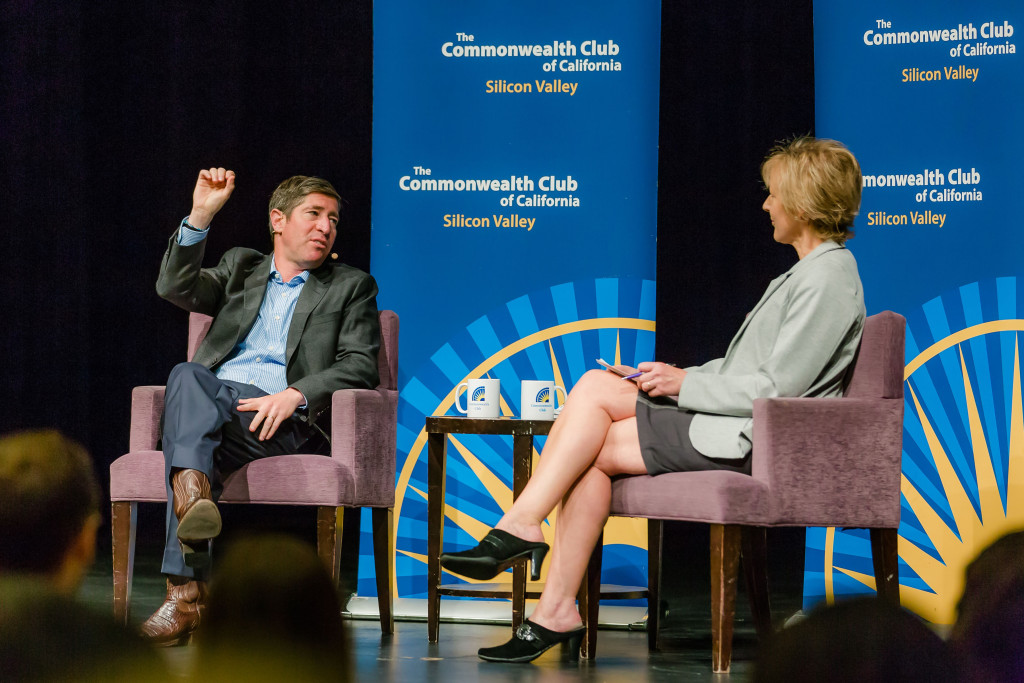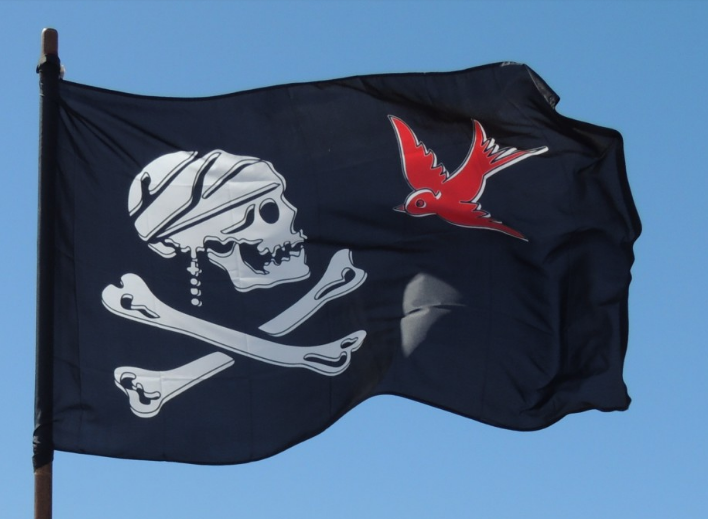Last week, I was invited to join the BBC World Service program “Business Matters” to discuss business ethics and the trade war. To give a flavor of the Silicon Valley zeitgeist, I shared highlights of my interview with Scott Kupor, a prominent venture capitalist (VC), and author of the book, “Secrets of Sand Hill Road.”
On the never ending drama of the US/China trade war, I came up with an apt way of describing Trump’s strategy: “Like a bull in a China shop.” (Listen at 15:45 in the BBC podcast)
This view was bolstered, just four days later, when we saw the biggest drop in the Dow Jones all year, and experts blamed it on Trump’s escalation of trade tensions. Headlines like this one are now common: Have U.S. Tariffs backfired? I won’t be surprised if an impulsive tweet from Trump plunges the world economy into recession.
But meantime, here’s a transcript of my conversation with the BBC’s Fergus Nicoll and author Jasper Kim in Seoul. It’s been edited (and italicized) for length and clarity.
Fergus Nicoll: Silicon Valley has had its fair share of “fake it till you make it” stories, would-be billionaire entrepreneurs who talk a great game and acquire a loyal and admiring following, then they go bust and sometimes go to jail. And it’s not just the tech sector. It’s fair to say the chance of hearing unvarnished, unpartisan truth from any given politician might be lowish. Alison, who’ve you been discussing ethical behavior with?
Alison van Diggelen: I had a great discussion recently with VC Scott Kupor…We talked about Facebook’s mantra of “moving fast and breaking things” and he feels the rules are different for small startups which have limited impact. He calls them “the pirates.”
I asked him: Are you saying it’s OK to be a pirate in the early stages of a startup?
Scott Kupor: It depends on what pirate means (audience laughter).
Fraud and misleading people is clearly not right. But the idea that you might enter into a market where you’re not exactly sure what the product should look like, you might have a theory on what your regulatory structure is, but you’re not 100% sure.

[Photo credit:Sarah Gonzalez/Commonwealth Club]
I’ll give you a great example: we’re investors in Airbnb and Lyft. These companies probably couldn’t have been successful if they’d asked for permission every time they went into a new market. You could argue that was unethical: They should’ve got permission first. The reality is, they said: we’re going to go into a new market, we believe we have a defensible theory that why what we’re doing is appropriate from a regulatory perspective, but we also know we’re likely to get challenged on that. But over time, if a consumer utility is big enough, there is a way to deal with these issues. So that’s my definition of a pirate: I think that’s reasonable acceptable behavior. Fraud and misleading people is not acceptable behavior.
Alison van Diggelen: In order to create a startup that’s potentially going to change the world, you have to break some rules and the question is: which rules? You have to question the status quo. Theranos –– the blood testing company that famously imploded last year and the CEO has been charged with fraud –– is a great example of going too far, going to the dark side. One of the Theranos whistleblowers, Tyler Schulz, has started a nonprofit called Ethics in Entrepreneurship to teach ethics, get the basics down.
This is why I asked Scott Kupor about ethics. VCs work closely with startups (they often join their board of directors) and I wanted to hold his feet to the fire and say: You (and your colleagues) have a responsibility to make sure your entrepreneurs are thinking about ethics. It’s one thing to be a pirate in the early days, but at some point you have to grow up and be like the navy and play according to the rules and respect the nation’s laws.
Fergus Nicoll: Do you think these internal debates translate across Asia in terms of startups, Jasper? For example, startups in Vietnam saying: we think we’ve got a space in the market, but we’ll have to break the rules to get there, then grow…and then we’ll behave?
Jasper Kim: There are some minute cultural nuances, but similarities. If you look at Steve Jobs. His famous quote is:
“All the great ideas were stolen.”
If you look at Apple in the early days: they flew a pirate flag and were unabashed by the fact that they basically ripped off or stole ideas from here and there. The genius of it was connecting different technologies that existed before, like the touch screen, with ATM machines, like the wheel on the iPod, and use that to make genius products like the iPhone.
What is ethical? That’s a big question. Kupor’s defense is that it’s all for consumer utilitarianism, but there’s also the other side of what’s ethical and that’s Immanuel Kant, and his theory of Categorical Imperative. You have to have certain values as inputs, you shouldn’t just deal with outcomes to justify your behavior.
Continue listening to the BBC podcast
Of course, the trade war and piracy (of IP) are connected at the core, but that’s a discussion for another day…
The BBC program aired live on August 1, 2019 and my conversation with Scott Kupor took place in front of a live audience at the Commonwealth Club in Silicon Valley on June 10, 2019.
Find out more about my Kupor interview at Fresh Dialogues




